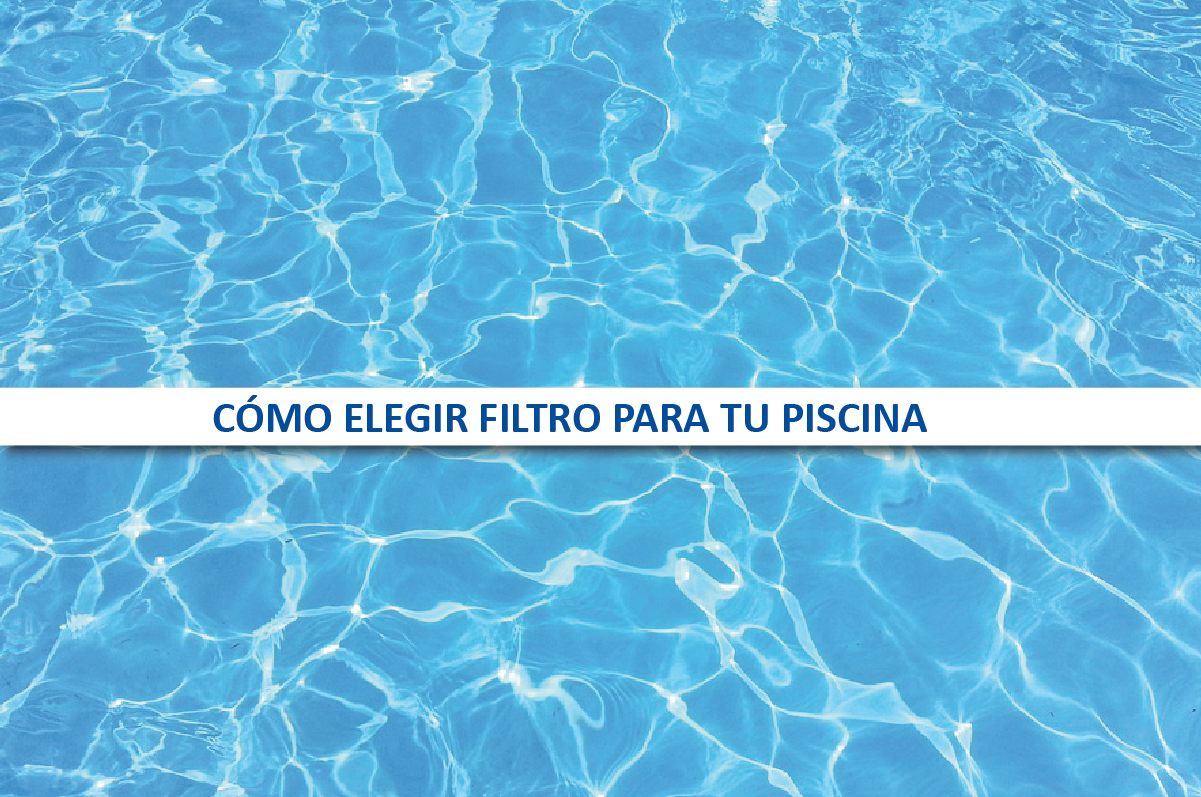In this post we will continue to inform and further inform you about another of the most important parts for the proper functioning of a pool. It’s essential to have a good filtration equipment. So if you find yourself in the middle of installing a pool or it’s your project before this summer and you still don’t know which filter is most suitable… read on!
What is a pool filter?
As I said, it is one of the main elements of the process of debugging a pool. It is the system that will take care of the cleaning and purification of the water that you will then enjoy in the pool. Your job will be to keep this crystal clear water and in adequate conditions to bathe without risks.
At the same time, it removes impurities that can contain water and that are not visible to the naked eye, but that need to be extinguished.
How does a pool filter work?
Leaving aside the multiple variants of filters that exist, their operation is the same. Firstly, the skimmer and sink suck all the water out of the pool thanks to the power of the pump, secondly, this water passes into a reservoir where there is a special filtering material. Afterwards, the water returns to the pool, and the cycle is completed.
Depending on how much the pool is used it is recommended to do this cycle once a day. The duration of this cycle will depend on: the pool water capacity, the pump power and the filter capacity used. The cycle duration it doesn’t have to be all day or excessive,8 hours are recommended for a swimming pool particular.
Types of filters for swimming pools
Currently we can distinguish three different types of filters:
- Cartridge Filter: These filters have replaceable cartridges every year and ideals for detachable pools. The filtration is carried out on the basis of manufactured materials. His advantage is the ease of cleaning and of installation.
- Sand filter: they are the most common filters as they require almost no maintenance and their quality is good. Water is cleaned through a reservoir with sand.It stands out for the its durability, which could last up to ten years, although it is advisable to change at seven.
- Diatomaceous filter: it is the most expensive type of filter as it is capable of filtering all kinds of dirt. Diatoms are microscopic fossilized beings that act as filter agents with great efficiency, even removing microscopic sized particles impossible to see through the human eye.
How do we choose the type of filter for our pool?
To be able to properly decide your filter, you can look at several factors, such as: the capacity of the pool, the power of the pump and that these are in harmony with the size of the filter. It is recommended to always choose a filter with higher capacity, that is, if it is estimated that you need one with a capacity of 17 m3 /h, it is best to buy one that its capacity is above.
If we talk about efficiency the diatomaceous filter is the best, as I mentioned above, and it is the one that can tune up to 7 microns in its filtration system, much higher than the other two modalities.
Filter cleaning maintenance
For the filter to work properly you have to do a public maintenance. Normally this maintenance means only washing. Depending on the use of the pool, the frequency of the filter wash will vary.In many cases the washing is performed when you notice that the water is not 100% crystalline and that it is not completely clean.
In sand filters, a good sign that the filter needs to be cleaned is the increased pressure on the pressure gauge.
In cartridge filters cleaning is reduced to removing the cartridges and with water jets remove the accumulated dirt.
Diatom filters contain a counter-washing system. This process reverses the direction of circulation of the water in the filter and thus expel the filtered materials to the drain. This washing is the most effective way to clean the filters in the pool. There are sand filters that also incorporate this process.
Our tips!
- To contribute to the environment and water saving, a good idea is to use all the water left over from the washing process, in case your chlorine does not exceed 3 ppm, to irrigate your garden, orchard or plants!
- Even in winter, don’t stop washing the filters at least once a week, but you want them to arrive spoiled the following summer.
- The pump has to stand when you perform some action with the rest of the elements, such as the filter or valves.
- Don’t wait to see the water in poor condition to do the maintenance!
